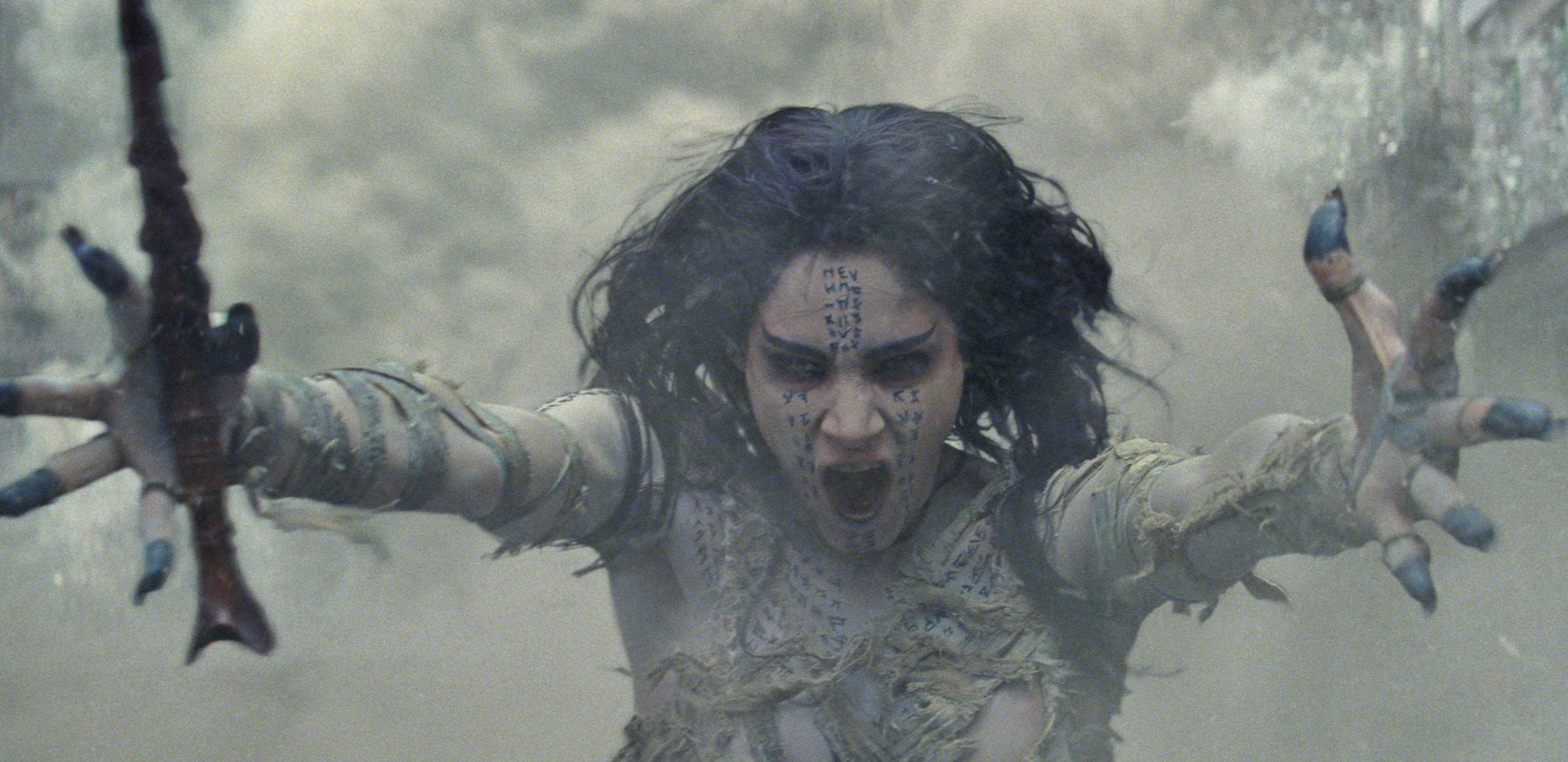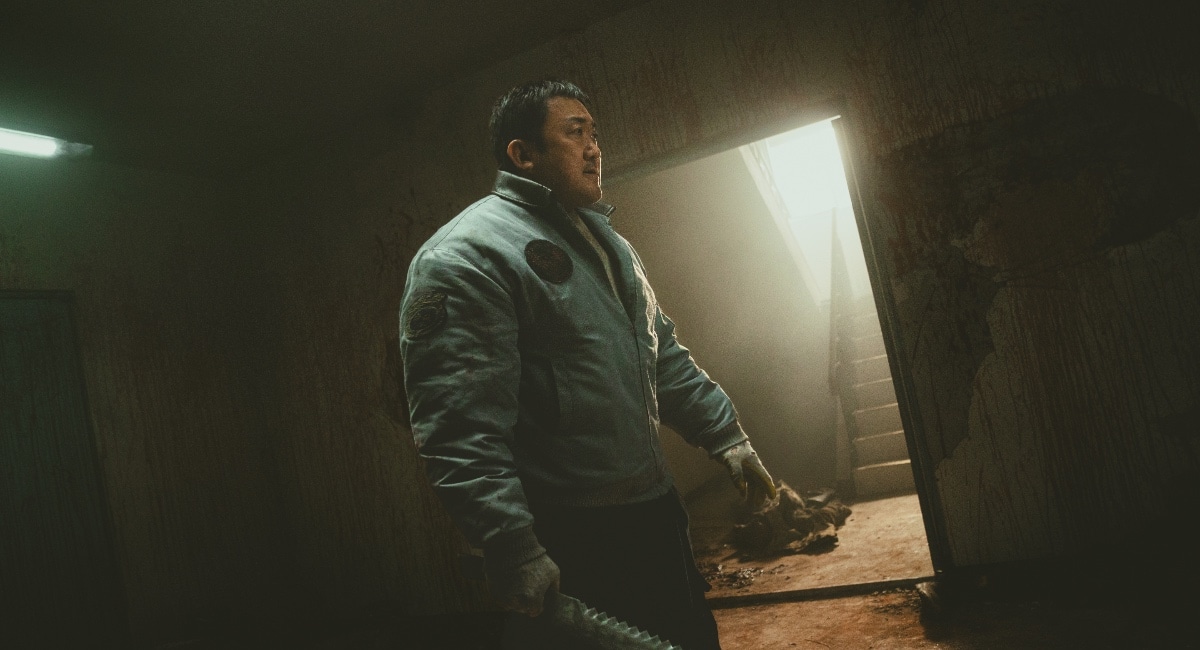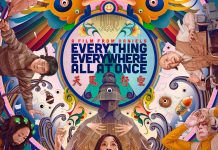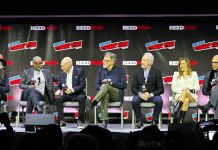You get a shared universe, and YOU get a shared universe, everybody gets a shared universe!
In the wake of Marvel’s outrageous financial and mostly critically friendly success with their set of interconnected films, every major studio wants in on the action. That includes the linked films of their once crosstown rivals, DC Comics; a series of movies that bring the Knights of the Roundtable to the big screen; and even the one time Eastern cinematic giant Godzilla, with a showdown with King Kong, who made his own return to cinemas this year. But Universal, which came out swinging two years ago with a trifecta of box office hits in Furious 7, Minions, and Jurassic World, saw their fortunes fade a bit in 2016, with The Secret Life of Pets being their lone breakout hit.
As such, the studio had been hard at work trying to resuscitate the one existing shared universe property they own, in their catalog of monsters. Once the originators of the concept, with creatures like The Wolfman going toe to toe with Frankenstein’s monster, and Dracula eventually tagging along in a usually unrelated fashion (seriously, have you ever seen House of Frankenstein? It’s like two pretty bad movies fused together), the big wigs behind scenes have spent decades trying to recreate that spark that once thrilled audiences of the pre-Cold War era. They had their best go at it with the Brendan Fraser starring The Mummy franchise, but after that saw embarrassing attempts like Van Helsing, The Wolfman remake, and an actual shared universe false start in Dracula Untold (think Green Lantern to this new Mummy’s Man of Steel and you’d about have the score of it).
And so, here comes the Dark Universe, which is initially blazoned across the screen like a bad parody of the Marvel and DC logos that pop up before their respective efforts. I’m sad to say, a bad parody just about sums it up where this new take on our favorite wrapped-up creature is concerned.
Brought to you by one-half of the duo that spearheaded such cinematic classics as Star Trek: Into Darkness and Transformers: Revenge of the Fallen, Alex Kurtzman turns one of the more haunting Boris Karloff originals into a painstakingly dumb action film that veers all too often into a territory resembling one of those fake bad movies that would show up in Tropic Thunder or Extras. You can practically see the look on Tom Cruise face that screams, “who writes this shit?” as he warbles off another piece of awful 90’s one-liner dialogue.
As this entire project seems to be designed to get Cruise, Johnny Depp, Javier Bardem and Russell Crowe in on the same sort of backend style money that made Robert Downey Jr. a fortune, you can imagine that this first go with what was once one of Hollywood’s most bankable stars is built to center all around him in the most savior-like way imaginable. And boy does it ever: Cruise plays a Nathan Drake-style protagonist named Nick Morton, a long-range specialist in the military whose flexible morality leads he and his pal Sgt. Chris Vail (Jake Johnson) into all kinds of monkeyshines. Of course, when a mission they’re involved with over in Iraq uncovers a hidden burial chamber, they and archaeologist Jenny Halsey (Annabelle Wallis, whose initial presence in the film is to act as an exposition device) accidentally let loose the ancient Princess Ahmanet (Sofia Boutella). This princess, whose whole shtick is to stab a fellow with a ceremonial rubied dagger in order to summon the Egyptian deity Set, takes a shine to Morton. And from there begins what is basically a two hour film where an increasingly beautiful woman cannot stop pursuing Tom Cruise, and that’s just the tip of the iceberg on the ego stroke of its star.
I knew from the outset that we’d run into trouble, as The Mummy begins with not one, but two flashbacks, one of which is narrated by Dr. Henry Jekyll (Crowe). The filmmakers, having no actual faith in their audience, return to that second flashback sequence at least two more times, maybe even three…I lost count after awhile. Even worse is that other than Morton, every other character – and I used that term loosely for the ciphers that populate this one’s running time – exists to explain either the Mummy herself, what’s happening to Nick, or the wider consequences of the all too quickly growing Dark Universe. The script, which was clearly the victim of multiple rewrites by the six credited scribes involved, including Kurtzman, never gives you an opportunity to understand anything about its cast. Not even Cruise gets more than a moment to breathe before he’s being thrust back into gear-turning moments that scream “set up for future installments” by way of the Jekyll-led Prodigium, a secret monster hunting organization that gets plopped right into the middle of the second act and never goes away. The few times we aren’t dealing with orations about the “new world of evil”, we’re treated to awful, cringe inducing romantic overtures between Morton and Halsey, and let me tell you, Wallis has romantic chemistry with Cruise that registers somewhere around unfamiliar coworker. This is supposed to be the central emotional hook of the story.
It also shamelessly rips off An American Werewolf in London, and in my neck of the woods, that’s an unfathomable sin.
The monsters themselves fare a tad bit better, but it’s real hard to polish a turd this smelly. Boutella, usually a nice standout in the two recent blockbusters in which she graces, works hard to establish Ahmanet as a fearsome presence, but is constantly undone by the shoddy happenings surrounding her. And while he’s emblematic of all the problems with the film and its intentions, Crowe gets one scene that is probably the only actual fun I had the entire time watching it. I left thinking that I’d be somewhat interested in a whole Dr. Jekyll film, if written and directed by someone else, of course.
I had some awfully low expectations going into this, but holy cow did they blow right past them and into the gutter with this production. This coming weekend, if you get the urge to go see this, do yourself a favor and purchase someone in your life a ticket for Wonder Woman instead. That will be a far more enriching experience.
It’s 9 am, on Wednesday June 7th, and I’m calling it on the Dark Universe, dear readers.









Time to just stop these multi-film universes. They are recipe for disaster, even the MCU feels like buckling under its own weight now.
Dunno about This Mummy but House of Frankenstien and House of Dracula were awesome movies, much better than most of the superhero movies Hollywood churns out these days.
This movie didn’t have a chance when they decided to make it a “starter” for a “universe”. The lesson should be “make a good movie first, then worry about building a universe around it.”
OTOH – I doubt that with the cast involved it could have done any better. A Mummy movie centered on Tom Cruise is going to be a Tom Cruise movie not a Mummy movie. He’s going to overwhelm everything else.
(I actually think that the “Dark Universe” idea has some merit, but not in the approach that Universal is taking. They need to look back to the original movies and the Hammer films and put a 21st century spin on those, not look to the Marvel movies as their template I think.)
I haven’t seen The Mummy yet so I can’t comment on this specific film. But I do disagree with the general sentiment in Jer’s comment “make a good movie first, then worry about building a universe around it.” Whatever the merits of this particular film, when dealing with serialized storytelling I never understood the faction that wants the filmmakers to only focus on one film at a time. That’s like asking a novelist to focus only on one chapter at a time, see how the audience reacts, and then go ahead and work on the next chapter of the novel. I realize that’s how it used to be in the days of Dickens but literature has moved on from there. And so has cinema. Planning things out in advance is a *good* thing.
House of Frankenstein is a terrible movie. Like, Superman IV, Batman & Robin, Thor, and Suicide Squad bad. House of Dracula is not bad, though, for a pulpy B-picture. Abbott and Costello Meet Frankenstein is the best of the monster team-up movies.
I will defend to my dying day the merits of the 2010 Wolfman film. I thought it was terrific (although I only saw the extended cut, so I have no idea what the theatrical cut was like). Clever melding of the original Wolf Man and Werewolf of London films. Visually beautiful.
Dracula Untold is a better film than it gets credit for being. Basically turning the 10-minute prologue of the Coppola film from 1992 into a feature-length story. Untold made me realize just how uninteresting I find the original Stoker story to be (it’s the weakest of the original Universal films (and I generally love those old Universal Monster films). The Vlad the Impaler riff is much more interesting to me.
“Whatever the merits of this particular film, when dealing with serialized storytelling I never understood the faction that wants the filmmakers to only focus on one film at a time.”
That is not, in fact, what I’m saying.
If you’re making a trilogy and you know it’s going to be a trilogy and you’re going to be able to make it then great – plan it out and do it right.
But if you’re launching a new property (or a revamp of an old property) then you need that first movie to be a success to make sure you get your three movies. And that means you really need to focus on making a movie that will be satisfying in its own right and not just a promise of fun in the future in exchange for mediocrity today. The worst example of this in my mind is Green Lantern – where they teased all sorts of easter eggs and cameos and didn’t focus on making a movie that was actually a satisfying watch. And so they didn’t get their sequels – they got one movie, people said “meh” and that was the end of it. Marvel understood this – Iron Man had to knock it out of the park for their whole experiment in self-funding films to work and it is a done-in-one movie that leaves room for sequels but only really teases a “wider universe” after the credits are finished. And because they focused on making it a really damn good movie, they got their wider universe.
And honestly what movies do best are done-in-one stories anyway. Two to three hours of a single story with a beginning, middle and end. Television is where serialized storytelling shines, and getting better all the time.
“But if you’re launching a new property (or a revamp of an old property) then you need that first movie to be a success to make sure you get your three movies.”
I guess I just respectfully disagree. If I’m reading a book, I don’t necessarily expect the first chapter to be the best chapter in the book. I don’t expect it to stand on its own as a fully satisfying experience. What I expect is for it to 1) grab my attention to make me keep wanting to read further, and 2) leave me hanging to want to read chapter 2, and 3) display some sense of what’s coming next/later (and then have those early threads developed more later on). Most of chapter one should be exposition, scene setting, and foreshadowing. That’s just good, classical narrative structure.
In order to do that second and third part of what I outlined above, you need to know where the story is going so that you can lay out those threads that will be developed later on. And in serialized cinema, when you focus only on one film at a time, you miss opportunities to foreshadow later events.
—–
“And honestly what movies do best are done-in-one stories anyway. Two to three hours of a single story with a beginning, middle and end. Television is where serialized storytelling shines, and getting better all the time.”
What you’re describing is cinema’s historical strength back when movies had more in common with short stories than with novels. What I’m arguing is that the medium is evolving and changing more toward a novelistic approach, and in many ways, the line between serialized movies and serialized television that you identify is blurring. In film, no longer are movie sequels simply “the further adventures of” type stories (e.g., pre-Daniel Craig James Bond films; Indiana Jones) where each sequel is essentially a self-contained story that makes only tangential (if that) references to what came before. They’re much more narratively complex and benefit from planning out the long-form arc. Similarly, serialized television is now much more cinematic in its visual scope, its production values, and the quality of the acting (e.g., Game of Thrones; Boss; State of Play). And with more and more people experiencing both serialized television and serialized films on big screen home theaters, the experience of watching both is essentially the same.
—–
“Marvel understood this – Iron Man had to knock it out of the park for their whole experiment in self-funding films to work and it is a done-in-one movie that leaves room for sequels but only really teases a “wider universe” after the credits are finished. And because they focused on making it a really damn good movie, they got their wider universe.”
People always bring up Iron Man (which I’ve always been lukewarm to personally, but I understand its appeal). What this analysis ignores, though, is that the people who keep saying how great the first Iron Man film is almost invariably dislike the next four films that came between it and The Avengers (some people make an exception for the first Captain America). Even the fiercest Marvel fans usually concede that the next three/four films after Iron Man were a complete waste of time. By my logic, though, if Marvel had planned out their film series better in advance, then those next four chapters would have been much better and not simply something that people struggle to get through (Don’t believe me? Go search out those reviews that people posted a few years ago where they watched a marathon of all the Marvel films in succession leading up to Age of Ultron. Notice how much of a struggle it was for nearly every reviewer to get through most of Phase I.)
By my logic, had the MCU been better planned out, chapter 2 (after Iron Man) would have been an Iron Man 2 that could have been a Godfather 2-like hybrid of existing IM 2 (what happens next to Tony Stark in the present after the events of IM 1) that would regularly cut back to Howard Stark in the 1940s and told much of the events of Captain America 1 in a more streamlined fashion. Then chapter 3 is The Avengers pretty much as is except you have a 10-minute prologue explaining Thor, Loki, and Asgard. Right there, pre-planning like that would have eliminated at least six hours of movies that most people dislike.
In the end, what it boils down to is that you’re evaluating films like these based on a historical perspective of what the medium *has always been*, while I’m looking ahead to what the medium is *becoming* and will be five, ten, or more years down the line. And in that environment the pre-planning model will likely be most relevant and most satisfying. And if film studios want their content to have a long tail for years to come that will appeal to future audiences on home video, they need to start planning for that new model now.
(Again, I haven’t seen The Mummy, so this argument is based only a specific criticism raised about the film that applies to other long-form film series)
I’d be glad to see the Universal monsters return — in horror movies. But the Dark Universe films aren’t planned as horror movies. They’re planned as CGI-packed action-adventure movies. You know, like Marvel and DC movies.
HOUSE OF FRANKENSTEIN and HOUSE OF DRACULA were not awesome movies (although ABBOTT AND COSTELLO MEET FRANKENSTEIN was). I’d rather see any of them than watch Universal’s attempts to reboot these properties for the superhero audience.
Sam Adams gets in a good crack at Tom Cruise’s expense in his Mummy review:
“The Mummy is the story of an ageless creature who exists outside the realms of life and death, perfectly preserved and yet not quite human. It is also the story of a mummy. ”
http://www.slate.com/articles/arts/movies/2017/06/the_mummy_the_new_tom_cruise_movie_reviewed.html
I agree with George and Jer about the very odd decision to turn these gothic horror figures into action movie stars. It doesn’t make any sense to have the Frankenstein monster, one of the landmarks of Victorian literature, turned into a superhero. And even when it’s done “well”, as seen in the comics of recent years, he’s basically a direct rip-off of Hellboy.
Penny Dreadful, while a show that absolutely buckled under its own weight by the time it came to a close, had the right idea for how a shared universe for this tragic bunch should work. Focus on the horror, eerie atmosphere and the core of what makes each monster tick. And to be honest, I think that’s the only moderately successful example of a monster shared universe ever actually working to my recollection (my youthful fascination with comedies like the aforementioned Abbott and Costello flick and The Monster Squad aside), at least as far as a specific Dracula + Wolfman + Frankenstein’s monster crossover goes.
It’s more that Universal’s marketing over the past 70+ years and other more parodical promotions (like a certain breakfast cereal line) have convinced the general public that these characters have always inhabited the same space successfully, and the evidence doesn’t really bear that out.
Their mistake is the arrogant announcing of a Dark UNIVERSE before the first movie was even released. Get the phuq over yourselves and your corporate greed, Universal. Your audience is not mere mindless puppets waiting on strings you can simply toy with to dangle them upside down in a pathetic attempt at emptying our pockets-which is obviously what you intend on doing. You made the same mistake as DC, trying to compete with Marvel’s already-established movie “universe” with dollar signs blinding your eyes to the fact that NO movie “universe” can exist simple because you want it to. Marvel’s universe happened naturally–stop trying to force it and start concentrating on making ONE GOOD MOVIE first. Then build from there. You arrogant pricks :-/ I suggest you read “Punching Babies: a how-to guide” and get the first script right before announcing multiple others no one wants to see.
Why take a bunch of horror properties and try to construct a comic-book-hero style franchise out of them? It makes no sense on any level except exploiting the properties’ brand value.
“By my logic, though, if Marvel had planned out their film series better in advance”
You know, I’ve certain been a know-it-all fanboy from time to time, but second-guessing the biggest money-making franchise in movie history is taking it a bit far.
Mike
Two comics-based ’90s movies, THE CROW and BLADE, did a good job of combining horror, superheroics and R-rated violence. Aside from their mediocre sequels, there’s really been nothing like them since … until, perhaps, this year’s LOGAN.
(2005’s CONSTANTINE was a failed attempt at this sort of horror-superhero hybrid. What were they thinking when they cast Keanu Reeves? That after the Matrix trilogy, people would pay to see him in anything? Apparently.)
Tom Cruise’s slow motion career meltdown.
http://variety.com/2017/film/columns/tom-cruise-career-meltdown-the-mummy-1202461441/
I think Cruise gave up on acting after Vanilla Sky in 2001. Since then he’s been content to be a global superstar, with diminishing results.
Comments are closed.